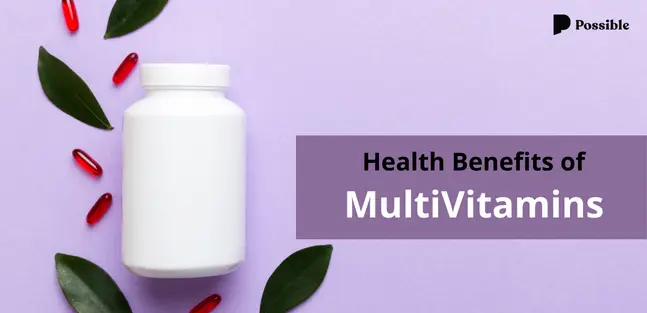Description

Copyright infringement not intended
Picture Courtesy: possible.in
Context: The recent study on multivitamins and memory, specifically from the COcoa Supplement and Multivitamin Outcomes Study (COSMOS), suggests potential benefits for older adults in preventing memory loss.
Details
- The recent study, known as the COcoa Supplement and Multivitamin Outcomes Study (COSMOS), focused on adults aged 60 and older, aiming to investigate whether daily multivitamin supplementation could have benefits for memory and cognitive function.
Study Highlights
- Study Design: The study involved over 21,000 older adults as part of the COSMOS trial, with a subset of 573 participants taking cognitive tests in person.
- Multivitamins and Memory: Adults aged 60 and older who took a daily multivitamin for two years scored higher on memory and cognitive tests compared to those who took a placebo.
- Potential Benefits: The study suggests that multivitamins could be a safe, affordable, and accessible approach to protecting cognitive health in older adults.
- Cognitive Improvement: Participants in both the multivitamin and placebo groups showed cognitive improvement over two years, but the multivitamin group exhibited a slightly greater gain, particularly in memory assessments.
- Consistent Findings: Results were pooled with two prior COSMOS investigations, totalling over 5,000 participants, showing consistent improvement in cognitive scores for those who took multivitamins compared to those who received a placebo.
- Memory Boost Estimate: The researchers estimated that the memory boost observed in individuals taking multivitamins corresponded to a theoretical two-year reduction in brain ageing.

Expert Caution and Critiques
- Modest Benefits: Experts not involved in the trial caution that the benefits observed are relatively modest and may not necessarily lead to tangible improvements in daily life.
- Interpretation Challenges: Some experts challenge the interpretation of the data, expressing concerns about the method used to conclude a two-year reduction in cognitive ageing.
- Need for Further Research: Experts emphasize the need for more research on multivitamins, especially in diverse groups, to understand who might benefit and why.
- Importance of Nutrient Deficiency: Suggestions that gain may be driven by individuals lacking specific nutrients important for brain health, such as vitamin B12, vitamin D, and zinc.
Recommendations and Conclusions
- Multivitamins for Specific Groups: While multivitamins may be useful for those with conditions affecting nutrient absorption, most healthy individuals may not need them.
- Not a Memory Improvement Recommendation: Some experts express reservations about recommending multivitamins solely for memory improvement based on this data.
- Prioritize Dietary Approaches: Emphasis on meeting nutritional requirements through dietary approaches as a priority for maintaining brain health.
|
Multivitamins
●Multivitamins are dietary supplements containing a blend of essential vitamins, minerals, and sometimes other nutrients.
●They come in various forms, from tablets and capsules to gummies and liquids, and can be tailored to specific needs, like gender, age, or health conditions.
●The primary purpose of multivitamins is to fill nutritional gaps in our diet.
●They provide essential vitamins and minerals that may be lacking due to factors like poor food choices, medical conditions, or certain medications.
●The effectiveness of multivitamins for healthy individuals is a subject of ongoing debate. Large-scale studies have shown mixed results, with some suggesting no significant overall benefits for preventing chronic diseases like cancer or heart disease. However, certain groups, like pregnant women, older adults, and people with dietary restrictions, may benefit from targeted supplementation.
|
Conclusion
- The study provides interesting insights into the potential benefits of multivitamins for memory in older adults, but the findings are not definitive, and more research is needed. Experts emphasize the importance of a healthy diet and lifestyle for overall brain health and suggest caution in recommending multivitamins solely based on this data.
|
PRACTICE QUESTION
Q. How can India's medical sector regulations effectively balance the need for affordable healthcare access for all with the need to ensure high-quality healthcare standards amidst limited resources and a vast, diverse population?
|












